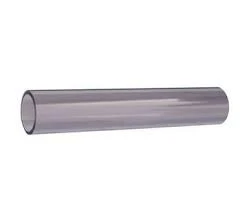Sep . 01, 2024 08:04 Back to list
pvc pipe for garden irrigation
PVC Pipe for Garden Irrigation An Efficient Solution for Hydration
When it comes to maintaining a lush garden, efficient irrigation is a cornerstone of successful gardening. One of the most popular materials for garden irrigation systems is PVC (polyvinyl chloride) pipe. Known for its durability, affordability, and adaptability, PVC pipe has become a favored choice among both amateur gardeners and professional landscapers alike.
Why Choose PVC Pipe?
PVC pipes are lightweight yet strong, making them easy to handle and install. Unlike traditional materials such as metal or clay, PVC does not rust or corrode, ensuring a long lifespan even when exposed to moisture and varying temperature conditions. This durability makes PVC pipes a cost-effective solution, as they require fewer replacements over time.
Another significant advantage of using PVC for garden irrigation is its resistance to chemicals. In gardens, soil, fertilizers, and pesticides can potentially affect the integrity of piping materials. PVC’s chemical resistance ensures that the pipes will remain effective and leak-free. Additionally, the smooth interior surface of PVC pipes minimizes friction, facilitating better water flow and reducing the likelihood of clogs.
Types of PVC Pipes for Irrigation
There are various types of PVC pipes suitable for use in irrigation systems. Schedule 40 PVC is the most common choice for garden irrigation due to its balance of strength and cost. For more demanding applications, Schedule 80 PVC offers additional thickness and durability.
pvc pipe for garden irrigation

Another option is to use PVC tubing, which is often flexible and easier to work with in tight spaces or curvy garden layouts. This flexibility allows gardeners to design custom irrigation solutions that can easily adapt to their garden’s contours, ensuring that water reaches every plant without wastage.
Installation Tips
Installing a PVC irrigation system can be a straightforward process if approached methodically. First, it is crucial to plan the layout of the irrigation system based on the garden’s size and the specific watering needs of the plants. A drip irrigation system, for instance, is an efficient choice for delivering water directly to the roots, minimizing evaporation and runoff.
Before installation, gather all necessary materials, including connectors, valves, and fittings. It is important to cut the PVC pipes accurately and use PVC cement to secure joints firmly. This ensures a watertight seal that prevents leaks and conserves water in the irrigation system.
Maintenance and Care
One of the advantages of using PVC pipes is that they require minimal maintenance. Regularly inspect the system for any signs of damage or leaks. Flushing the system occasionally will help remove any debris or sediment that could cause blockages. Additionally, ensure that exposed pipes are insulated during colder months to prevent cracking.
In summary, PVC pipes are an excellent choice for garden irrigation systems, thanks to their durability, chemical resistance, and ease of installation. By adopting a PVC-based irrigation system, gardeners can enjoy efficient water delivery while promoting healthy plant growth. With proper planning and maintenance, PVC pipes can provide a long-lasting solution for all gardening needs, ensuring that every plant receives the hydration it deserves.
-
Durable PP Rigid Sheet: Lightweight, Chemical Resistant Solutions
NewsAug.21,2025
-
PVC Grey Sheet for Extraction: Chemical Resistant & Durable
NewsAug.19,2025
-
Durable PVC Pipe Fittings for Plumbing & Irrigation Needs
NewsAug.18,2025
-
HDPE Steel Belt Reinforced Spiral Corrugated Pipe | High Strength
NewsAug.17,2025
-
HDPE Pipe Fittings: Durable, Leak-Proof Solutions
NewsAug.16,2025
-
Premium CPVC Sheet: High-Temp & Chemical Resistant Solutions
NewsAug.15,2025

